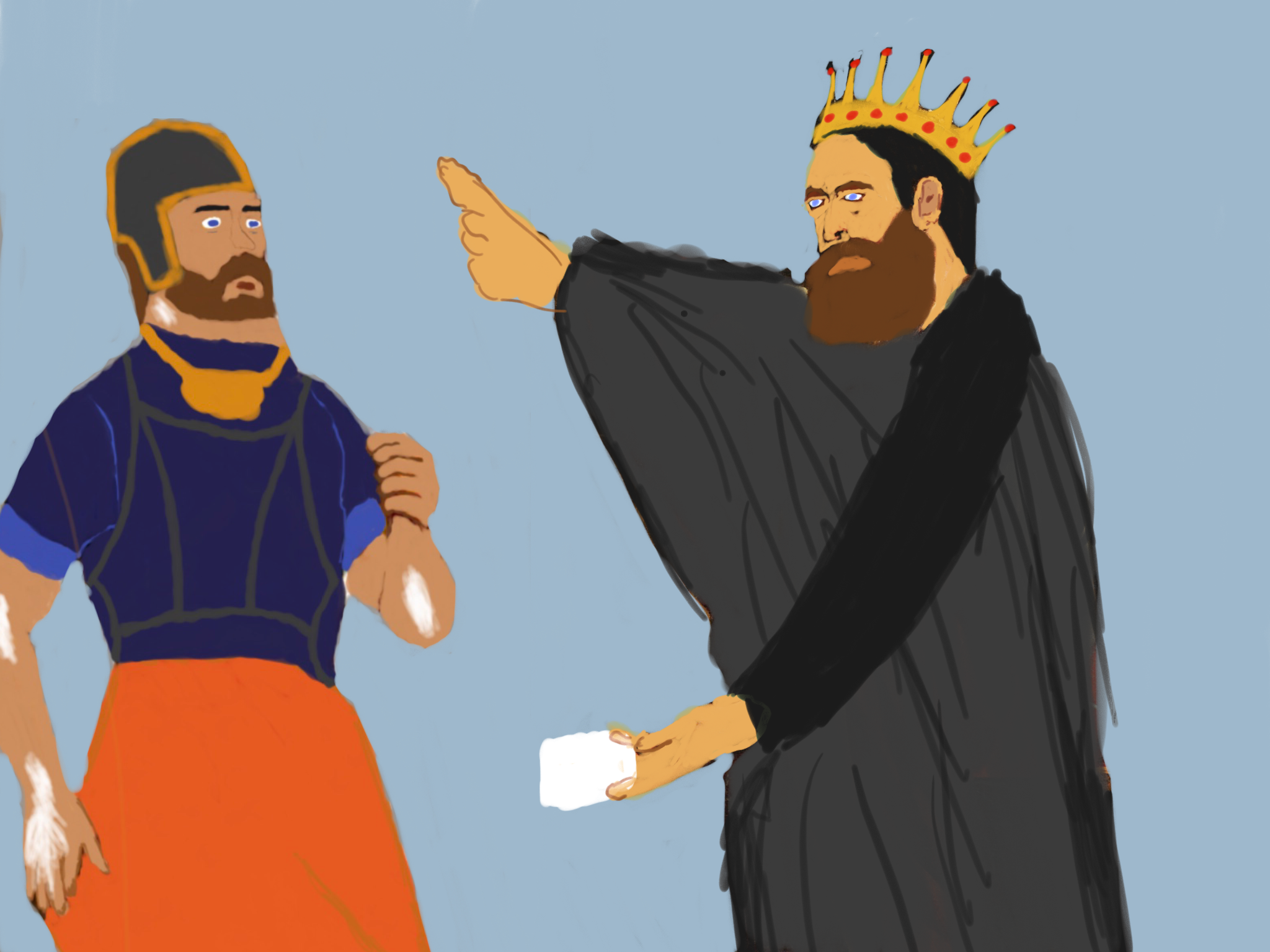#107: The King Sends the General

Then the king of Syria said, “Go now, and I will send a letter to the king of Israel.” So he departed and took with him ten talents of silver, six thousand shekels of gold, and ten changes of clothing.
II Kings 5:5 NKJV
Before my first international business trip I had to present my manager with a strong case demonstrating the value of traveling a great distance to meet various clients and prospective clients to warrant the expense. First I wanted to lay out the history of the business relationships, the number of companies I had lined up to meet, and the revenue potential these companies represented. Then I would conclude by asking for a budget to pursue this activity. Before I reached the revenue potential portion of my presentation my manager interrupted me and said, “You should go, I will approve the travel.”
The account of Naaman’s experience with Ben-Hadad,* king of Syria, is similar. Naaman had not yet made a request of the king, he was simply recounting the conversation when Ben-Hadad stopped him, reached a conclusion, and gave instruction: “Go now, and I will send a letter to the king of Israel.” Ben-Hadad had several reasons to agree quickly and order Naaman’s travel to Israel.
First, Ben-Hadad had seen and borne witness to miraculous works of the God of Israel. In the First and Second battles of Ben-Hadad Run, the Lord God of Israel had worked wonderfully in allowing small numbers of Israelites to defeat overwhelming numbers of Syrian soldiers. To cap off the second battle, a wall had fallen and killed 27,000 Syrian soldiers at one time, a number likely greater than the whole standing army of Israel. Then in the Third battle, Ben-Hadad could not locate Ahab to kill him and the Lord allowed a random archer’s arrow to strike at precisely the weak point in Ahab’s armor and kill him. Ben-Hadad was a living witness to the great works of the God of Israel.
Second, Ben-Hadad’s greatest general had a limited number of days left to serve his country if his leprosy continued to consume his body. Ben-Hadad knew that neither Naaman nor Syria had anything to lose by a mission into Israel. In the best case scenario, Naaman would be healed and remain an asset to Syria for many years to come. In the worst case scenario that Naaman was not healed, Ben-Hadad could use the failure as the basis for further invasion of Israel (vs. 6).
With this knowledge and political leverage in mind, Ben-Hadad freely sent Naaman to Israel. Naaman wasted no time in gathering his company of soldiers and ample gifts for one who might heal him, and set out for the ravaged and pillaged rebellious land of Israel.
There is nothing about Ben-Hadad’s life that leads us to think he was a child of the Lord. Quite the opposite. Nevertheless, Ben-Hadad was a witness to the mighty works of God and yet he never embraced the Messiah as his Lord and God alone.
We have seen this in other men in Scripture like Pharaoh, Barak, and Ahab, to name a few before Elisha’s day; in Jesus’s day there were the Pharisees and Sadducees, Judas, and others. Many men were living witnesses to the glory and power of God but did not embrace Him by faith but rather rejected and cursed Him.
Let us not be satisfied to read and wonder at the works the Lord has done in Scripture. Neither let us sit and wait for a miraculous work of God to be done in front of our eyes. But rather let us read of Him in His Word where He may be found and believe on Him alone while the hour of salvation is still here.
.
*Some may disagree on the timing of II Kings 5 within the broader context of the book. I take it as during the famine that we read of in II Kings 4:38 and during the reign of Ben-Hadad, king of Syria, who Ahab defeated in miraculous fashion twice before being subdued and killed in the third recorded battle.
Copyright ©, LikeTheGreatMountains.com, 2020



0 Comments